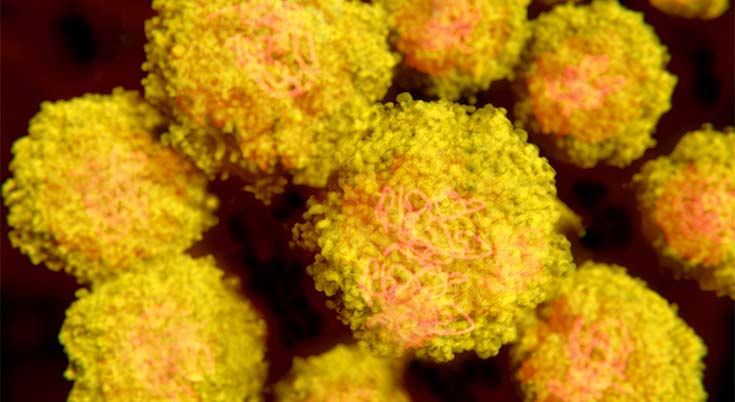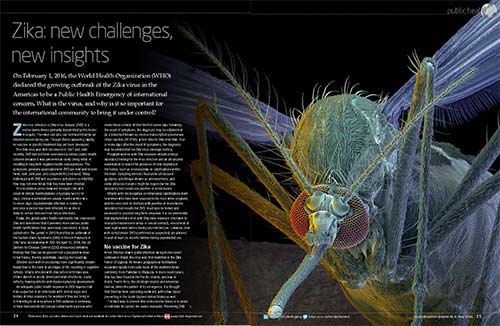Zika vaccines protect mice from infection and two-dollar lab testing kit is announced
A single dose of either of two experimental Zika vaccines fully protected mice challenged with Zika virus four or eight weeks after receiving the inoculations, according to research conducted by investigators supported by the National Institute of Allergy and Infectious Diseases (NIAID) in the US. The research suggests that similar vaccines for people could be similarly protective.

(Image: Juan Gärtner / 123rf)
One of the vaccines, a DNA vaccine, contains genetic snippets from a Zika virus strain that circulated recently in Brazil to elicit immune responses. The second is made from a purified, inactivated Zika virus that recently circulated in Puerto Rico.
In a first set of mouse experiments, the BIDMC investigators established that virus-specific antibodies were induced by the DNA vaccine. Next, the teams injected either of the two experimental vaccines into additional groups of mice. Four weeks later, mice that had received the DNA vaccine were exposed to the Brazilian strain of Zika virus known to cause foetal birth defects in mice analogous to those seen following foetal Zika infection in humans. No virus replication was detected in any of the vaccinated mice. Other mice receiving the DNA vaccine were exposed to virus eight weeks later. They, too, were protected from infection. The inactivated virus vaccine also protected mice from Zika infection. Moreover, the Zika-specific antibody levels detected in the mice appeared to correlate with protection against infection.
The researchers note that both DNA and inactivated virus vaccines have been developed to prevent infection by West Nile, dengue and tick-borne encephalitis viruses, all of which are in the same virus family as Zika. "Taken together, our findings provide substantial optimism that the development of a safe and effective Zika vaccine for humans will likely be feasible," they write.
Meanwhile, as anxiety over the Zika virus grows in the run-up to the Olympic Games in Rio de Janeiro, the American Chemical Society’s Journal reports on a two-dollar laba test that can accurately detect low levels of the virus in saliva.
To ensure their system would be highly selective for Zika without confusing it with similar viruses, the researchers – Changchun Liu and colleagues – looked for and found a stretch of genetic code that is nearly identical for 19 different strains of the Zika virus infecting people in the Americas but not in other pathogens. Then, with materials costing $2 per test, they developed a diagnostic system, which only requires the addition of water to operate. If the Zika-specific genetic sequence is in a saliva sample, a dye within the system will turn blue within 40 minutes. The test even works if low levels of the sequence are present, according to the researchers.
Read the Crisis Response Journal’s article on the Zika virus in CRJ 11:4.
